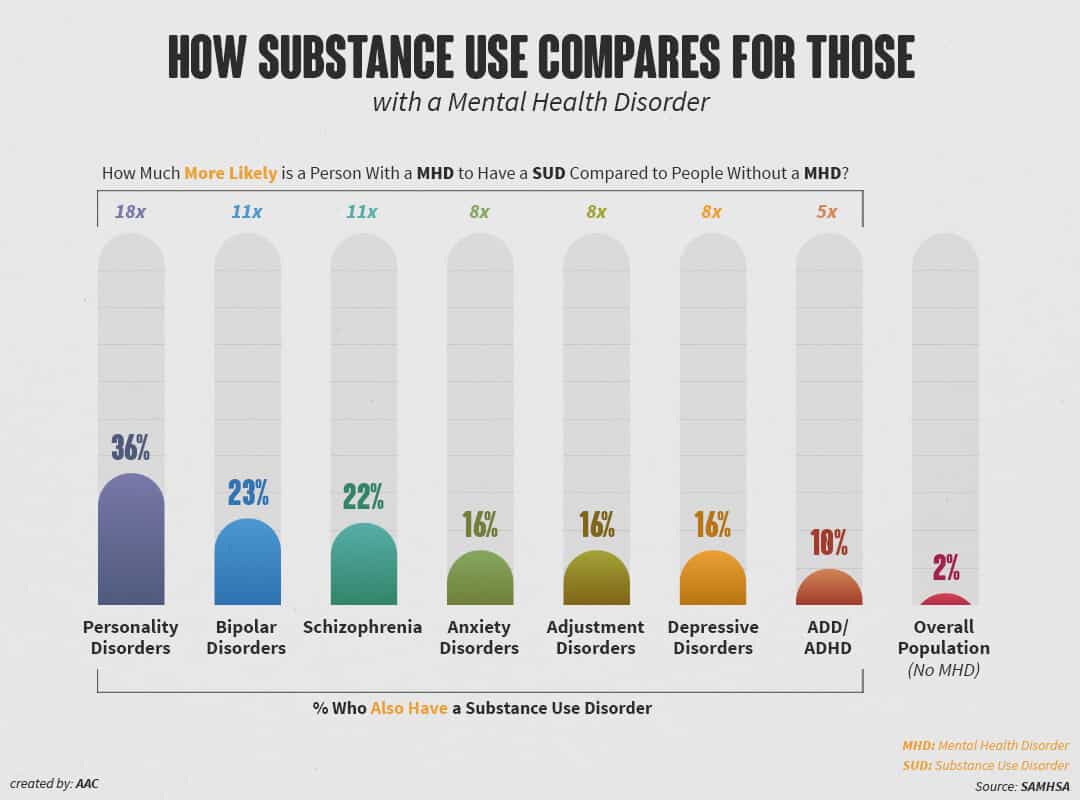Listen the podcast

Juan Moisés de la Serna, PhD
Doctor of Psychology, Master of Neurosciences and Behavioral Biology.

Marcos Altable, MD
Founder of Neuroceuta. Specialist in Neurology and Child Neurology
The week begins and we are back.
In our last post, we talked the characteristics of ADHD in older adults, its impact on everyday life and its treatment alternatives. Join us today, as we tell about the most frequent co-occurring mental disorders in patients with ADHD.
According to Mayo Clinic, substance use disorder, also called drug addiction, is a disease that affects a person's brain and behavior, and leads to the inability of controlling the use of a legal or an illegal drug. Substances such as alcohol, marihuana and nicotine are also considered drugs.
Substance use disorders are some of the most prevalent mental disorders in general adult population, preceded only by anxiety and mood disorders. Studies have shown that patients with ADHD have an increased risk of developing addiction.
The presence of ADHD in childhood and adolescence, is also a stable predictor of tobacco, alcohol, and illegal addictive substances use in adulthood.
There is some overlap of symptoms between substance dependence and ADHD. The main discussion is whether impulsivity, social behavior disorders, or external factors can explain the link between ADHD and substance use.
Both substance users and people suffering from ADHD present high levels of impulsiveness.

Impulsivity is a core symptom of ADHD, and it is also correlated to substance use. This overlap of symptoms leads to the hypothesis that the increased impulsivity of ADHD patients could explain the higher substance consumption.
Furthermore, a study with children diagnosed with ADHD, concluded that both impulsivity and sensation-seeking, play a mediating role in the risk of developing addiction.
The comorbid existence of ADHD is highly relevant for the treatment of addiction. Young ADHD patients with a comorbid cocaine or opiate-related disorder, have an increased risk of suicide and are more likely to be hospitalized.
So, how can we deal with this complex relationship between ADHD and substance use disorder?
Substance abuse is understood as a short-term functional route to symptom management and can lead to substance dependence in the long term.
Although complementary psychotherapeutic approaches have been implemented, the use of medications remains the mainstay of ADHD treatment according to researchers from the New York State Psychiatric Institute.
The use of stimulant medications in a patient with ADHD, and a co-occurring substance use disorder, should be made on the basis of a broad clinical assessment, and an individual risk-benefit analysis.
As a complement to pharmacological therapy, psychoeducation can also be used.
Psychoeducation refers to the process of providing education and information to those seeking or receiving mental health services, such as people diagnosed with mental health conditions and their family members.
When patients learn about his disorder and its pervasive consequences, he can develop an effective treatment adherence.
So, when patients are provided with educational literature and/or they are referred to community support groups, it can be very helpful for patients and families to have a better understanding of the disorder.
Despite the current advances made in the field of ADHD treatment, new results are revealed every day that help understand the complex coexistence of substance use disorders and ADHD.
As new treatments will be available in the near future, Rany’s podcasts will keep you posted.
If you would like to know more about other topics or content through our podcast series, feel free to contact us.
We wish you an excellent week!